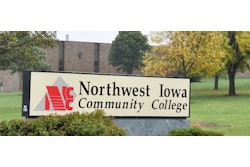
But the report—put out by the Urban Institute and titled “Delivering Early Information about College Financial Aid Exploring the Options for Middle School Students”—does not argue for providing that information in a school setting.
Rather, the report calls for taking a look at the pros and cons associated with delivering financial aid information to low-income families with middle schoolers when or shortly after their parents file their taxes or apply for social support benefits—namely, the Supplemental Nutrition Assistance Program, or SNAP, and Medicaid.
SNAP, Medicaid, and the federal income tax filing process all emerge as “the most promising routes for communicating with the parents of middle school children because of the large populations they serve, the characteristics of their participants, and their administrative structures,” the report states.
If doing financial aid advising—even a little bit—during times of financial trouble or tax time sounds problematic, that’s because it is, the authors of the study concede.
However, those times could also be ideal opportunities to make sure the information reaches the families who could benefit from financial aid the most and informs children who are “unlikely to understand that going to college will be within their financial reach,” they say.
The report was authored by Sandy Baum, senior fellow in the Income and Benefits Policy Center at the Urban Institute and a research professor at George Washington University, along with Sarah Minton and Lorraine Blatt, a research associate and research assistant, respectively, in the Income and Benefits Policy Center.
The report got generally favorable reviews among several leaders in higher education policy.
“The point Sandy and her people are trying to make is we need to do something different than what we’ve been doing in the past in order to be more aggressive, more assertive in our outreach to these students and their families,” said Michelle Asha Cooper, president of the Institute for Higher Education Policy. “Most people, and I would agree, agree the earlier you can get students information about college, letting them know that college is possible, the better, because then they can start taking steps to be prepared.”
Cooper said she would have no problem pitching the recommendations of the report with policymakers and philanthropists.
“The more points of entry, the better,” she said when asked about providing financial information to families during tax time or when they apply for social support benefits.
“I think when it comes to how we spend money in this country, we have to completely overhaul what we think,” Cooper said. “Our surest bet is helping the neediest students get opportunities to propel them forward. That is where you’ll get the biggest bang for your buck and the biggest return on your investment.”
To be clear, the report does not say tax time or when families are applying for income support is the best time to provide financial aid information to low-income families. It just says providing the information during those times is worth a look and a little experimentation.
“We urge careful study of pilot programs before implementing a large-scale program of the type described here, because there is likely not a low-cost option,” the report states. “The goal is to encourage more low-income students to enroll (and succeed) in college.
“Understanding how the costs of an early information program compare to the improvements generated would be an important step in moving toward the goal of increasing educational opportunities for all in our society.”
The report notes how, in fiscal 2013, SNAP served an average of 47.6 million people monthly, or 23.1 million households, including approximately 10.2 million households with children.
As of October 2014, 68.5 million people were enrolled in Medicaid and the Children’s Health Insurance Program, or CHIP. Both Medicaid and CHIP provide care to approximately 31 million children and 11 million non-elderly low-income parents, the report notes.
Other social support programs, such as Temporary Assistance for Needy Families, or TANF, and Women, Infants and Children, or WIC, served far fewer children and families, the report shows.
In 2012, there were 145 million tax filers, approximately half of which earned less than $30,000 annually, and 26 percent of which earned less than $15,000.
However, just because large numbers of poor people use SNAP and Medicaid doesn’t mean that when they apply for those benefits is the best time to talk about how much money their children may be eligible to get for college.
“One of the difficulties of using enrollment in social support programs as an opportunity to provide early information about college financial aid is that when people are working with the bureaucracy to access benefits they need to sustain their families, they are under considerable emotional strain,” the report states. “This may not be the best time to ask them to focus on yet another hurdle in life.”
Similarly, there are questions about whether and to what extent SNAP and Medicaid caseworkers should be in the business of providing financial aid information to students.
“We don’t think for a minute it’s going to be your SNAP caseworker or Medicaid caseworker, but there may be some general information that could come from them,” Baum said in an interview with Diverse.
Tax preparers, on the other hand, may be better suited to provide such information, Baum said.
“They’re very interested in how they can provide additional services to their clients, and something that has social benefit,” Baum said.
If speaking to philanthropists or policymakers about her report, Baum said she would urge them to try “multiple pathways” to see what works best.
“I would not propose implementing some big national program when we don’t know what would work,” Baum said.
Jamaal Abdul-Alim can be reached at dcwriter360@yahoo.com. Or follow him on Twitter @dcwriter360.















